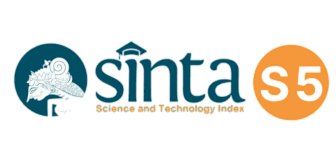Komitmen Partai Kebangkitan Bangsa sebagai partai hijau: Studi kasus Partai Kebangkitan Bangsa dewan perwakilan cabang Kota Surabaya
Downloads
This study discusses the commitment of green parties who care about the environment. The green party is the result of public dissatisfaction with the old conservative party which rarely prioritizes environmental interestS. It means that this green party has a role to participate in fighting for environmental issues into public policy. In Indonesia, until now there is only one political party that has declared themselves as a green party that cares about the environment, and the name is Partai Kebangkitan Bangsa (PKB). This qualitative research explains that the declaration of PKB as a green party must be followed by a real work program related to the environment. The results of this study refer to the PKB's point of view on the environment in the city of Surabaya, such as in the process of escorting natural disaster management programs and policies, also building community awareness to be more environmentally friendly through changing the patterns of behaviour. Meanwhile, proving the PKB party as a green party that cares about the environment can be seen from the performance that has been taken to fight for environmental issues, for examples, the Ecopesantren, Jambanisasi, Biopori and Reduction of plastic waste programs. However, the regulatory affairs of PKB's commitment as a green party are still considered to be insignificant.
Copyright (c) 2022 Jurnal Politik indonesia (Indonesian Journal of Politics)

This work is licensed under a Creative Commons Attribution-NonCommercial-ShareAlike 4.0 International License.
- Copyright of this journal is possession of Editorial Board and Journal Manager, by the knowledge of the author, while the moral right of the publication belongs to the author.
- The formal legal aspect of journal publication accessibility refers to Creative Commons Atribusi-Non Commercial-Share Alike (CC BY-NC-SA), implies that publication can be used for non-commercial purposes in its original form (cannot be modified).
- Every publication (printed/electronic) are open access for educational purposes, research, and library. Other than the aims mentioned above, the editorial board is not responsible for copyright violation.












